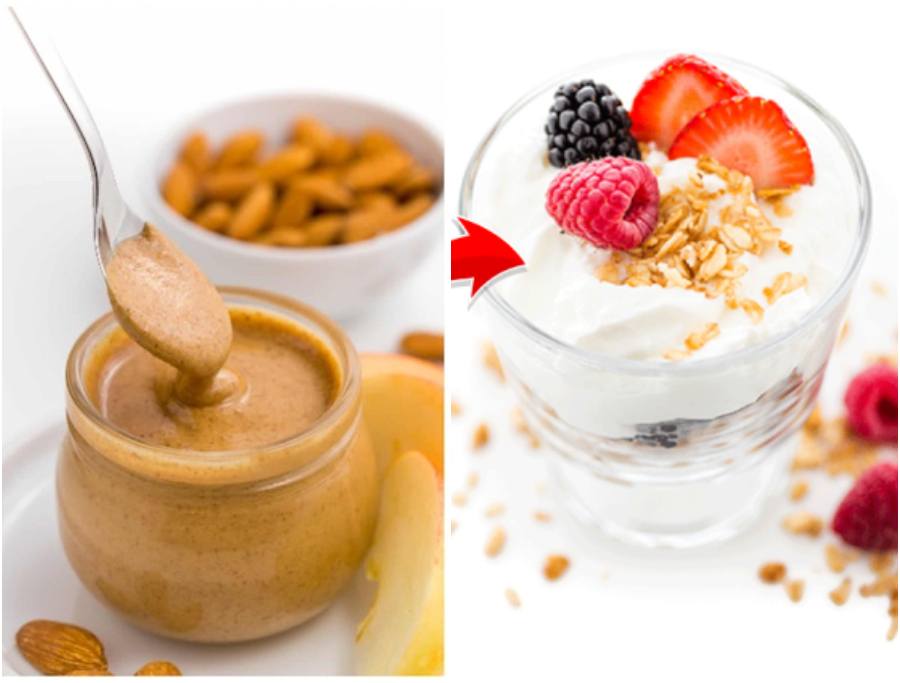According to certain reports, a majority of women from the urban population suffer from PCOD (polycystic ovarian disease) and thyroid disorders, both of these are hormonal disorders caused by imbalances in female hormones. It’s quite common for female hormones to fluctuate during menstruation and pregnancy, but these are just temporary imbalances which correct by themselves within a few days. Hormones are considered as chemical messengers in the human body because they regulate major functions in the body, directly coordinating with the brain. It’s extremely important to keep hormones in check because as we have mentioned before, they control a lot of important body functions – your energy level, immunity, metabolism, sleep, inflammation, and of course every other hormone is related to weight loss/weight gain. But rather than making lifestyle and dietary changes which are the main reasons leading to hormonal imbalances, most of us opt for medications and would rather pop pills than make these necessary changes. We often overlook the importance of a clean diet in tackling health problems because once you weed out processed food, toxic ingredients, transfat, and other harmful ingredients from the daily diet, all functions of the body begin to run smoothly and the bonus is often balancing out of hormones. Many people on Rati Beauty diet have reported that these healthy diet programs have not only helped them lose weight, their PCOD and thyroid conditions have improved. As Hippocrates, father of medicine, famously said, Let food be thy medicine, and let medicine be thy food.” The importance of regular exercise and healthy diet can never be underestimated because they can cure a majority of health problems. So, in this post, we list out foods that can help balance hormones that cause weight gain.


Symptoms of Hormonal Imbalance in Women:
- Fatigue
- Irregular menstrual cycle
- Hot flashes
- Digestive problems
- Acne
- Facial hair
- Weight gain
- Sensitivity to hot and cold weather
- Puffy face
- Severe hair fall.
- Difficulty in losing weight.
- Mood swings
5 Main Causes of Hormonal Imbalances in Women:
Hormones control nearly every aspect of how we feel, and insulin, serotonin, cortisol and dopamine, not to mention estrogen and testosterone, can all be effected by food choices we make.
Wrong dietary habits
Lack of sleep
Obesity
Pregnancy
Stress
Which Hormones that can Cause Weight Gain in Women?
1. Thyroid: The thyroid gland in our body which regulates metabolism secretes three types of hormones – T3, T4, and calcitonin. When there is an imbalance in these hormones, weight gain is a common symptom along with fatigue and sluggish metabolism.
2. Insulin: Insulin is a fat-storing hormone, secreted by pancreas, which is instrumental in creating new fat cells. Many people believe insulin is needed to regulate blood sugar levels in the body, but it’s also a hormone which triggers creation of new fat cells. When body cells become insulin resistant, your body easily stores extra calories as fat, without burning them off. Whenever you eat high-glycemic food such as high-sugar, refined, processed food cause sharp spike in insulin levels and all those extra calories will most likely get stored in the body as fat deposits.
2. Leptin dysfunction: Leptin is the satiety or fullness hormone that sends signal to the brain that you are “full” and have had enough food. In chronic inflammation, the function of leptin gets affected and even when you have had enough food, leptin fails to send signal to the brain, and you are piling up on calories, uncertain of when to stop eating. Leptin resistance can also slow down your metabolism and increase ghrelin (hunger hormone) levels. All these factors not only prevents weight loss, it can make you pile on more pounds with every meal.
3. Insulin: Insulin is a hormone which regulates blood sugar level in the body, but it also is a fat-storing hormone, secreted by pancreas. Insulin is instrumental in creating new fat cells. When body cells become insulin resistant, it tends to store all extra calories as fat, without actually burning them off. Whenever you eat high-glycemic food such as high sugar, refined carbs, processed and junk food, there’s sharp spike in insulin levels and all calories in excess will most likely get stored in the body as fat, mostly around the belly area.
4. Estrogen: High estrogen level can make you insulin resistant and prevent you from losing weight.
5. Ghrelin: Ghrelin is also called the hunger hormone because it triggers appetite and when someone says, they have a “huge appetite,” they have high levels of ghrelin. This hormone is secreted by the stomach, brain, and pancreas. When you have high ghrelin levels, you feel constantly hungry, unable to feel full even after having a large meal. There are many factors that cause unusual rise in this “hunger hormone.”
6. Cortisol: It is also called as “stress” hormone because it increases when the stress levels are high. Cortisol is secreted by adrenal glands.
7. Testosterone: This hormone is produced by ovaries, but high stress and bad diet can lower testosterone level and lead to weight gain.

How Thyroid Imbalance Causes Weight Gain?
Hypothyroidism is a condition where there is malfunctioning of the thyroid gland because there is not enough stimulation from the thyroid stimulating hormone (TSH) which is released from the pituitary gland, which in turn is controlled thoroughly by the hypothalamus part of the brain. People who suffer from hypothyroidism find it extremely difficult to lose weight despite following a strict diet routine and indulging in optimum physical activity. The thyroid gland is responsible for regulating metabolism and if there is under-activity in the production of thyroid hormones, the metabolism will automatically become sluggish and slow down which means you would not be able to effectively burn calories or fat. Low thyroid hormone levels bring down the basal metabolic rate or resting metabolic rate which directly affects the burning of calories. Excessive weight gain in hypothyroidism can also be due to increased salt and water accumulation in the body. You can lose up to 10% of your body weight after treating hypothyroidism. Read more about hypothyroidism here.
How PCOD Leads to Weight Gain?
Caused by imbalance in the hormones (chemical messengers) in your brain and your ovaries. PCOS usually happens when a hormone called LH (from the pituitary gland) or levels of insulin (from the pancreas) are too high, which then causes the ovaries to make extra amounts of testosterone. This imbalance in hormones leads to polycystic ovarian disease.
18 Foods That Can Help Balance Hormones that Cause Weight Gain:
As mentioned earlier in the post, let food be thy medicine, and include these foods into your daily diet to improve your overall health and to correct hormonal imbalance.
1. Flaxseed: Flaxseed oil plays a significant role in fat burning and thus, helps to maintain a healthy body weight. Flaxseed has lignans which is a type of phytoestrogen that is considered to estrogen hormone and can help with weight loss when taken correctly. Check out Rati Beauty diet programs on how to consume flaxseed the right way to shed weight.
2. Avocado: This fruit is rich in healthy fat and raises appetite-suppressing hormones such as leptin in the body, and prevents overeating and binging.
3. Broccoli: This is considered a must-have in all weight loss diets because it is rich in fiber, which keeps the leptin levels high. This fruit also helps to reduce inflammation.
4. Pomegranate: Studies have revealed that the compounds in this fruit block triglycerides and prevent storage of fat in the body.
5. Leafy green vegetables: Leafy green vegetables are powerhouses of nutrients, are low in calories, and keep you full with their fiber content. Most importantly, they have B vitamins which help regulate insulin and prevents you from getting fat.
6. Pumpkin seeds: They are rich in vitamins, minerals, and increase leptin levels which regulates and suppresses appetite.
7. Almonds: A rich source of plant protein, it keeps you full for long and also supplies a great amount of nutrition to the body. Just remember them to soak in water overnight to increase its bioavailability.
8. Turmeric: Turmeric is a thermogenic food which raises the core temperature of the body and burns more calories. It also is immunity booster which also increases the level of leptin.
9. Black pepper: Black pepper is rich in vitamin C. It also has the compound “piperine,” in black pepper boosts metabolism and prevents storage of extra calories as fat in the body. According to certain studies, piperine has potential fat reducing and lipid lowering properties
10. Quinoa: It’s a gluten-free option for those who are intolerant to this compound. It regulates blood sugar levels and keeps insulin in check. It has high fiber and protein content which keeps appetite-suppressing hormones high.
11. Chickpeas: They have a fairly low calorie density and this means that they provide the body few calories relative to the amount of nutrients they contain. They help us to keep our appetite under control and thus helps in cutting down snacking and gorging on junk food, helping us cut down on junk food and empty calories
12. Coconut oil: A good source of healthy fat that helps regulate insulin hormone and reduce insulin resistance, prevents new fat cells from forming.
13. Green tea: Green tea is great for weight loss because it has antioxidants and flushes out toxins from the body. It also helps to regulate insulin.
14. Fish oil: The omega-3 fatty acid increases the production of fullness hormone leptin and helps to regulate blood sugar levels.
15. Whole grains: High in complex carbs, they do not cause spike in insulin levels, keeping blood sugar levels normal.
16. Eggs: They keep you full through the day, supplying essential vitamins and minerals at the same time, and they also have nutrients that are essential in the synthesis of thyroid hormone.
17. Chia seeds: Rich source of fiber, healthy fat, they increase the level of leptin in the body.
18. Sunflower seeds: Rich in vitamin E, fiber, they are great to include in smoothies for weight loss.
10 Millets of India that Help with Weight Loss
8 Proven Beauty Benefits of Quinoa
11 Power Food Combos To Speed Up Weight Loss
6 Minerals That Help you Shed Extra Weight





